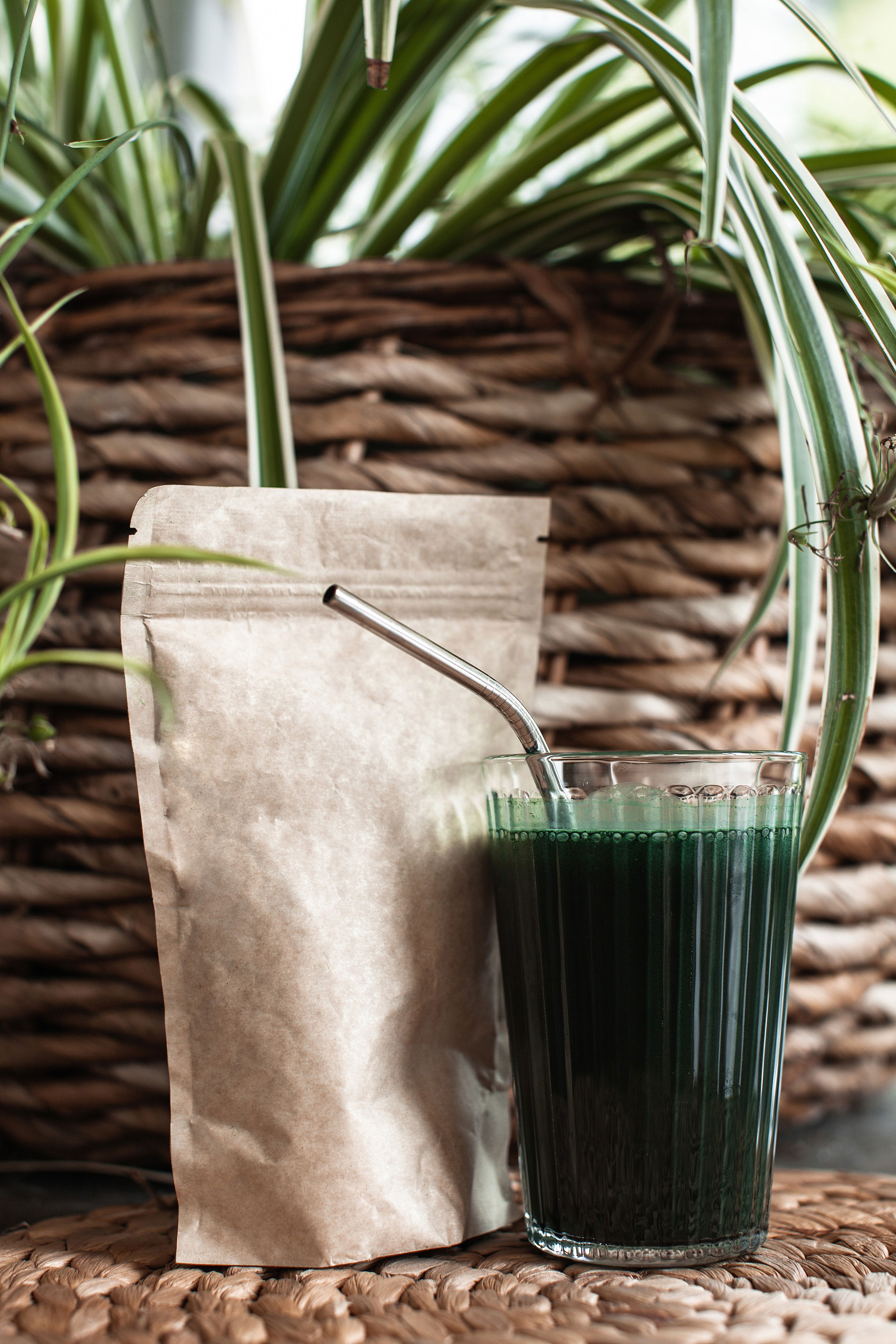Spirulina: The Nutrient-Dense Algae Superfood
In the quest for nutrient-rich superfoods, spirulina has emerged as a powerhouse of essential nutrients and health benefits. Often referred to as blue-green algae, spirulina is a microscopic organism that thrives in freshwater and saltwater environments. Its striking blue-green color is a testament to its rich nutritional profile, making it a sought-after dietary supplement and natural food source. In this comprehensive guide, we will delve into the world of spirulina, explore its nutrient density, unveil its potential health advantages, and provide insights into incorporating it into your diet.

The Nutrient Density of Spirulina
Spirulina is celebrated for its exceptional nutrient density, packing an impressive array of vitamins, minerals, and other essential compounds into its tiny cells. Here's a glimpse into the nutritional treasures found in spirulina:
1. Protein:
Spirulina is a remarkable source of high-quality protein, with protein content ranging from 50% to 70% by weight. It contains all nine essential amino acids, making it a complete protein source.
2. Vitamins:
Spirulina provides a variety of vitamins, including vitamin A, vitamin K, several B vitamins (including B1, B2, B3, B6, and B9), and vitamin C. It's particularly rich in provitamin A (beta-carotene), which supports healthy vision and immune function.
3. Minerals:
Spirulina contains essential minerals such as iron, calcium, magnesium, potassium, and zinc, which are vital for various bodily functions, including bone health, muscle contraction, and immune support.
4. Chlorophyll:
The green pigment in spirulina, chlorophyll, is renowned for its potential detoxifying and antioxidant properties.
5. Phycocyanin:
The blue pigment phycocyanin is unique to spirulina and has been studied for its antioxidant and anti-inflammatory effects.
6. Essential Fatty Acids:
Spirulina contains essential fatty acids, including gamma-linolenic acid (GLA), which has anti-inflammatory properties.
Health Benefits of Spirulina
The nutrient-rich composition of spirulina contributes to a wide range of health benefits:
1. Nutrient-Rich Protein:
Spirulina's high-quality protein content makes it an excellent choice for vegetarians and vegans looking to meet their protein needs.
2. Immune Support:
Spirulina's vitamins, minerals, and antioxidants bolster the immune system, potentially reducing the risk of infections.
3. Anti-Inflammatory Properties:
The phycocyanin and GLA in spirulina have anti-inflammatory effects that may alleviate symptoms in inflammatory conditions like arthritis.
4. Antioxidant Protection:
Spirulina's antioxidants help combat oxidative stress and protect cells from free radical damage.
5. Heart Health:
Spirulina may support heart health by improving cholesterol levels and reducing blood pressure.
6. Detoxification:
Chlorophyll in spirulina may aid in detoxifying the body by binding to heavy metals and other toxins.
7. Allergy Relief:
Some studies suggest that spirulina may help alleviate allergy symptoms by modulating the immune response.
Incorporating Spirulina into Your Diet
Spirulina can be easily integrated into your daily diet through various methods:
1. Spirulina Powder:
Spirulina powder can be mixed into smoothies, juices, or yogurt for a nutrient boost. Start with a small amount and gradually increase your intake.
2. Spirulina Capsules or Tablets:
Spirulina supplements are available in capsule or tablet form, providing a convenient way to incorporate spirulina into your routine.
3. Spirulina Snacks:
Some companies produce spirulina-infused snacks like energy bars or popcorn for a tasty and nutritious snack option.
4. Spirulina-Enhanced Foods:
Look for spirulina-enhanced food products like pasta, noodles, or health bars for a more diverse way to consume this superfood.
A Word of Caution
While spirulina is generally considered safe for most people when consumed as a dietary supplement or in food, it's essential to choose high-quality spirulina from reputable sources to ensure purity and safety. Pregnant or breastfeeding women, as well as individuals with certain medical conditions, should consult with a healthcare professional before adding spirulina supplements to their diet.

Conclusion
Spirulina, the nutrient-dense algae superfood, is a testament to the incredible diversity of health-promoting compounds found in nature. Its rich protein content, abundance of vitamins and minerals, and unique pigments like chlorophyll and phycocyanin make it a valuable addition to any diet. Whether you choose spirulina powder in your smoothie, capsules as a daily supplement, or spirulina-enhanced foods, you can unlock the nutritional potential of this remarkable blue-green algae and support your overall well-being.
Sources:
- National Institutes of Health (NIH). "Spirulina." Read more
- Harvard T.H. Chan School of Public Health. "Protein." Read more
- National Center for Complementary and Integrative Health (NCCIH). "Spirulina." Read more
- Mayo Clinic. "Iron." Read more
- University of Maryland Medical Center. "Beta-carotene (Vitamin A)." Read more
- National Cancer Institute. "Phytochemicals." Read more
- Cleveland Clinic. "What You Need to Know About GLA (Gamma-Linolenic Acid)." Read more
- National Center for Complementary and Integrative Health (NCCIH). "Chlorophyll." Read more
- Arthritis Foundation. "Diet and Rheumatoid Arthritis." Read more
- Linus Pauling Institute. "Chlorophyll and Chlorophyllin." Read more